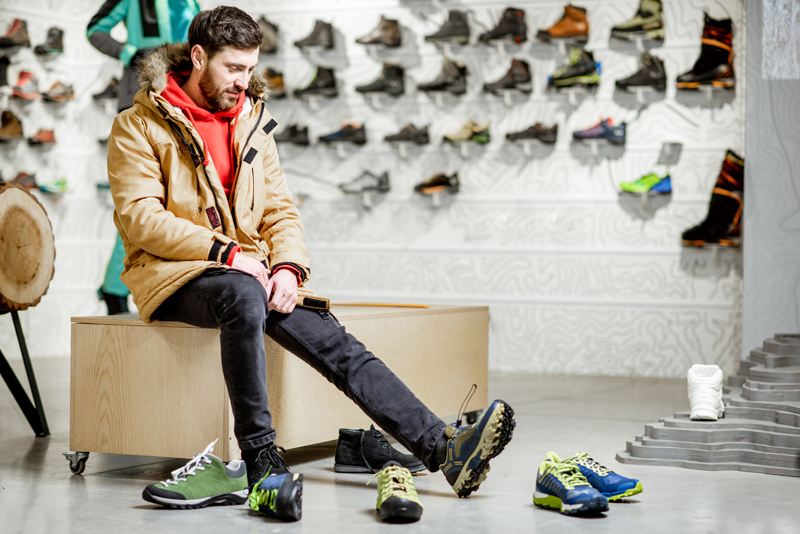As a Carer, you spend hours caring for other people’s feet. Now it’s time to look after yours.
Spending hours a day on your feet puts stress on your lower limbs and feet, so it’s essential to give them the support they need. A good, well-fitting pair of shoes can make all the difference to your mobility and comfort, during work and in the long-term.
But how do you know if your shoes are giving you the support you need? That’s exactly what we’re here to explore.
As a Carer, what should you look for in a shoe?
A good shoe for a Carer is supportive, light weight, and able to be properly secured to your feet (with laces, buckles or Velcro). It is also important that your shoes have a non-slip sole and are well-cushioned.
How can you test if a pair of shoes is right for you?
Let’s put your shoes to the test. Follow these five simple steps to ensure your feet stay protected and healthy:
1. Push
Want to see how much support your shoes provide? Push the back end of each shoe inwards. If the back end stays firm, great! Your shoes have robust heels that will provide great support for your feet. If the backend bends inwards, then your shoes are not supportive enough for your work as a Carer. Time to choose another pair.
2. Bend
Is your shoe flexible where it counts? Bend the shoe where your toes go. Does it bend easily? Perfect. You want shoes that bend and flex with your toes at your metatarsal joints (located just behind your toes). The more flexible and elastic your shoe is here, the better the shoe is at activating and supporting the muscles in your foot.
3. Twist
Twist the middle section of your shoe. Did it twist? If so, it’s time for a new pair. Carers need a pair of shoes that remain stable and firm in the middle, even when twisted. This is essential for supporting your foot arch and bearing the weight of your body properly.
4. Tie
The last thing you need as a Carer is your feet slipping from your shoes. Wear shoes with laces so you can firmly secure your shoes to your feet. Alternatively, shoes with buckles or Velcro achieve the same results. Having properly secured feet prevents your toes from jamming into the front of your shoe, which can cause pain and discomfort.
5. The Rule of Thumb
Do your shoes fit correctly? Let’s find out. There should be about a thumb width of space between the tip of your longest toe and the front end of your shoe (remember, your longest toe may not be your biggest toe!). If your toes touch the end of the shoe, they are too small. Try a size up.
Where can you go to get shoes fitted correctly?
Choosing the right footwear can be confusing, expensive and time-consuming. If you have any questions or want a professional opinion, contact a Podiatrist.
A Podiatrist can assess whether your current shoes fit you well and make recommendations if not. Podiatrists often work with specialist footwear stores and know which shoes match the demands of a job on your feet. You may only need to see a Podiatrist once to ensure the shoes you buy are right for you.

What issues may you experience if you have incorrectly fitting or unsupportive shoes?
- Plantar fasciitis: Do you have a deep ache in your foot or shooting heel pain? Plantar fasciitis may be the cause.
- Bunions: Bunions present as a swelling or deformity of the first joint on the big toe.
- Blisters: Blisters are often created by the foot rubbing against the shoe, causing irritation. If you are getting blisters, your shoes might be too tight.
- Metatarsalgia: Metatarsalgia occurs when the ball of your foot becomes inflamed. This can be extremely painful, making it unbearable to stand or walk.
- Corns and calluses: Continuous friction between the foot and the shoe can cause corns and calluses, which are areas of thickened skin.
If you’re experiencing any of these issues, please see a Podiatrist as soon as you can to get them treated.
A huge thanks to Carers for all the incredible work you do! We hope this post has given you some useful, practical tips on choosing the best pair of work shoes for you.
By Resonance Podiatrist Sophie Walls
www.respod.co.nz
0800 473 776

